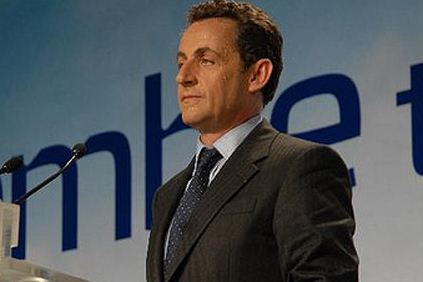The tender is phase one of an overall 6GW of offshore wind energy the government expects to bring on line by 2020 as part of its commitment to produce at least 23% of France's final energy consumption from renewables by that date.
But while the industry is relieved that something is happening at last, it fears that the chosen zones are too small and too few, and that the timetable is way too optimistic. It also has concerns about the terms of the government's call for proposals.
The 3GW is divided between five zones along France's Atlantic and Channel coasts, previously identified by the coastal regional authorities as being favourable for wind power deployment. Each zone will be awarded as a single project. The grid operator has already reserved capacity on the nearest substations.
The government expects to publish the tender terms in early May after a period of public consultation. Companies will have until 30 November to submit bids and the winners will be announced in the first quarter of 2012. They will be selected on the basis of the proposed price, environmental impacts and plans to establish local supply lines and industrial partnerships. The maturity of projects will also be taken into account. If all goes to plan, the government estimates the first plant could be operating in 2015.
Too small and too few
The industry, however, has its doubts. To ensure the full 3GW is built, "it is imperative that the potential volume is greater than the target", says Andre Antolini, president of renewable energy trade association SER. Jean-Francois Petit, development director of French developer-operator Eole-Res, also points out that the government has left no margin for projects being smaller than anticipated or even dropping by the wayside. That is a real risk, given that selected candidates only receive the right to generate electricity.
They still have to obtain the other necessary authorisations, including the right to occupy the maritime domain, and so face the possibility of legal challenges. The only project retained after a 2004 tender call for 500MW of offshore capacity is still stuck in the courts.
Wider consultation
The government argues that it has reduced the likelihood of this happening with the current tender. This time around the regional authorities were asked to consult more on a wider scale and hold a public debate to ensure the idea is accepted among local communities before starting the tendering process, says Pierre-Franck Chevet, director general of energy and climate at the environment ministry. In addition, Sarkozy indicated that the zones are not definitive - more may be added as the process moves forward if there is strong support from all interested parties.
Nevertheless, opponents are already squaring up. Fishermen in the St-Brieuc area have voiced concerns about potential disruption to their fishing grounds, while Second World War veterans groups maintain the Corseulles site is too close to beaches commemorated for the 1944 D-Day landings.
Progressive approach
The industry also sees a danger in opting for such large projects straight away. "To go from zero megawatts to 500MW is another mistake," says Petit. '"It would be better to take a progressive approach," he believes. With such huge investments, the government has to find well-financed, solid companies capable of undertaking offshore projects of 500-750MW, Petit warns. He also questions the manner in which the areas were chosen, complaining about the lack of transparency as to how zones were selected or rejected.
As for terms of the tender, the industry is seeking a number of improvements, says Marion Lettry, deputy commissioner for wind, hydro and maritime energies at SER. She says there is significant concern about the proposed price ceiling of EUR150-160/MWh depending on the zone. This is not very high and runs the risk of selecting projects that are "not serious" and will not get built, Lettry fears.
In addition to the price of the electricity, potential bids will be judged on environmental impact and their ability to create more local jobs. "We will be very vigilant to ensure the specifications of the tender include ... criteria that will allow the emergence of an industrial sector in France," says environment minister Nathalie Kosciusko-Morizet.
Bidders line up
Already a number of powerful players are jostling for position. The most notable to announce its intentions so far is renewables giant EDF Energies Nouvelles, French turbine manufacturer Alstom and France's largest independent electricity and gas supplier Poweo, which have agreed to submit joint bids.
In addition, leading shipbuilders DCNS and STX France have signed a memorandum of understanding to collaborate on building steel structures and foundations for marine energies. The ports are also getting in on the act, with St-Nazaire, Le Havre and Cherbourg in particular hoping to attract industries to set up locally.
While many doubt that 3GW is enough to create a powerful industrial sector, the government remains optimistic. This is "the start of a tremendous industrial adventure in marine energies," says Kosciusko-Morizet. "The commitment we make is that of resolute and unambiguous support for this promising sector. We rely on the richness and strength of our industrial base to transform these favourable winds into both energy and jobs," she adds.

.png)



.png)









